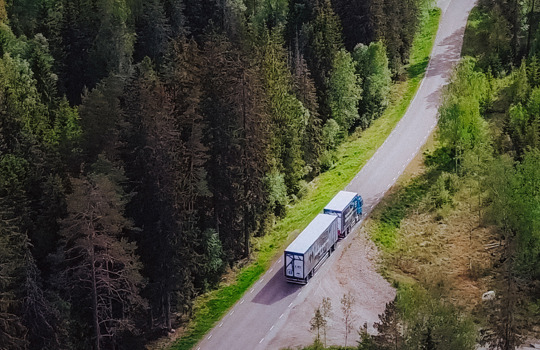Energy thoughts: The energy transition will not happen overnight – but some external pressure is a welcomed push
I have attended several energy conferences during the past 10+ years. In most of them, I have also been invited to give a presentation or to participate in a panel discussion related to some important energy topic. In many cases, these conferences are attended by likeminded participants, who are either producing, consuming, transporting, or trading LNG.
It’s very common for the same audience to understand the environmental benefits of using LNG compared to, let’s say, coal or fuel oil: If you are using LNG, you are reducing carbon emissions by 25% compared to heavy fuel oil and at the same time, you are also reducing nitrogen oxide emissions and sulfur oxide emissions by 95% and 100% respectively.
Still, when attending the conference as a speaker, we are repeating these known facts again and again to an audience that are already aware of the challenges and benefits. Why do we do that? We are patting ourselves on the back with sincere conviction that we are doing the right thing for the future. LNG is a cleaner energy source compared to coal or fuel oil. We are reducing carbon emissions and other particle emissions by using LNG. Great job, some might say. But there are also other opinions…
"From the protesters’ point of view, we 'the LNG industry' should have been ashamed of ourselves. Their opinion was that we should move to a 100% carbon neutral society immediately."
Demands for an immediate end to LNG
I was attending the Americas Energy Summit in New Orleans in mid-January 2024. There were discussions and presentations on the importance of LNG as a path towards carbon neutrality. For some listeners, though, this was not enough. The conference was interrupted twice by protesters. These people demanded an immediate stop to production of LNG, as methane leakages along the whole LNG value chain from upstream to downstream are destroying our planet.
From the protesters’ point of view, we “the LNG industry” should have been ashamed of ourselves. Their opinion was that we should move to a 100% carbon neutral society immediately. The different net-zero targets by year 2030, 2035, 2045 or 2050 are simply not enough to save our planet.
These demands are very noble, but for us to reach the set targets and stay on track, we need to have a structured approach. This path also needs to be commercially viable to survive and achieve public support. Energy poverty of the next generation is an option that the public is not willing to accept.
Change takes years – but work should never stop
These protesters did not shock many of the participants at the conference. I was talking to several attendees and our opinions were quite similar. We all thought that it’s important and beneficial that there is external pressure on the energy industry to continue the efforts to reduce emissions throughout the value chain.
Nowadays decarbonization is in the heart of the energy industry. One of the examples of the efforts is that hydrogen has been added to the agenda in most of these energy conferences. We also agreed that it’s important for the industry to continue to educate the public about the impact different energy sources have on the environment. It is equally important to understand that we are not able to transition from the current situation to 100% renewable energy in one day, not even in a few years. But within 10–15 years, the goal should be reachable.
The transition path consists of multiple different alternative energy solutions. It’s a step-by-step process to reach net zero goals and a greener future. We need to work every day towards that goal.
Jouni Liimatta, Head of Trading & Optimizing



